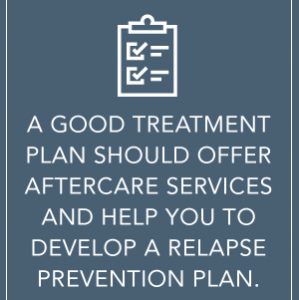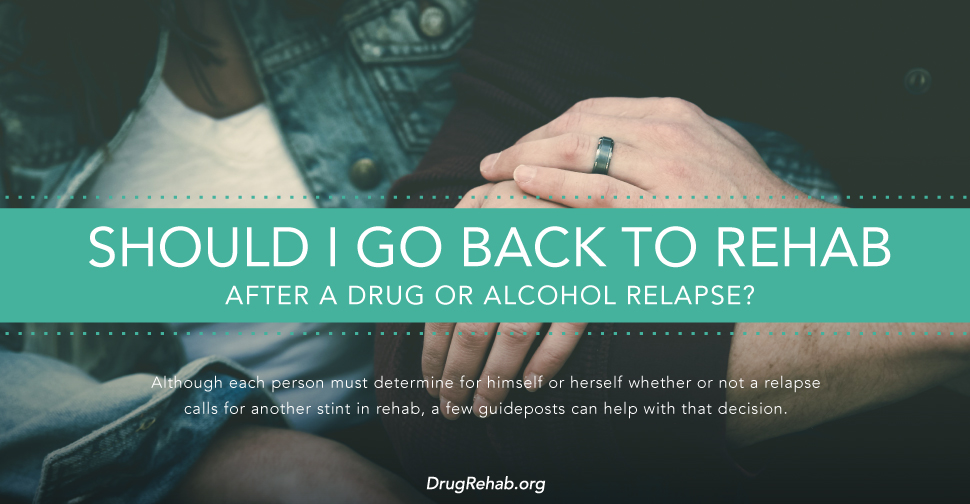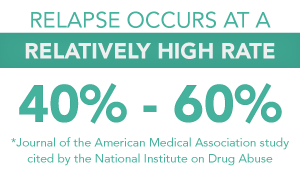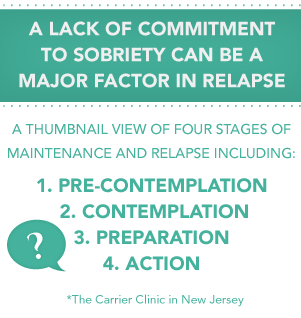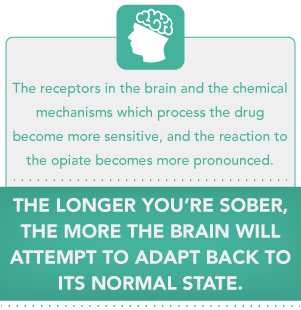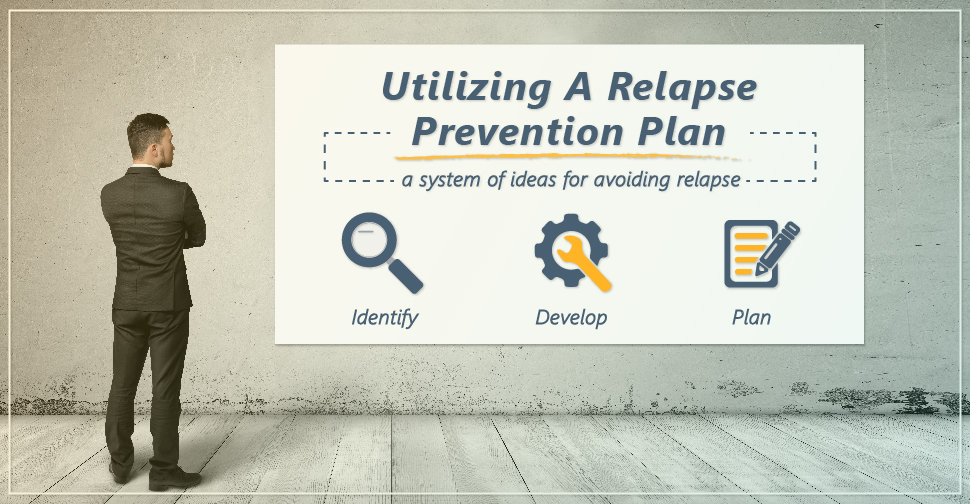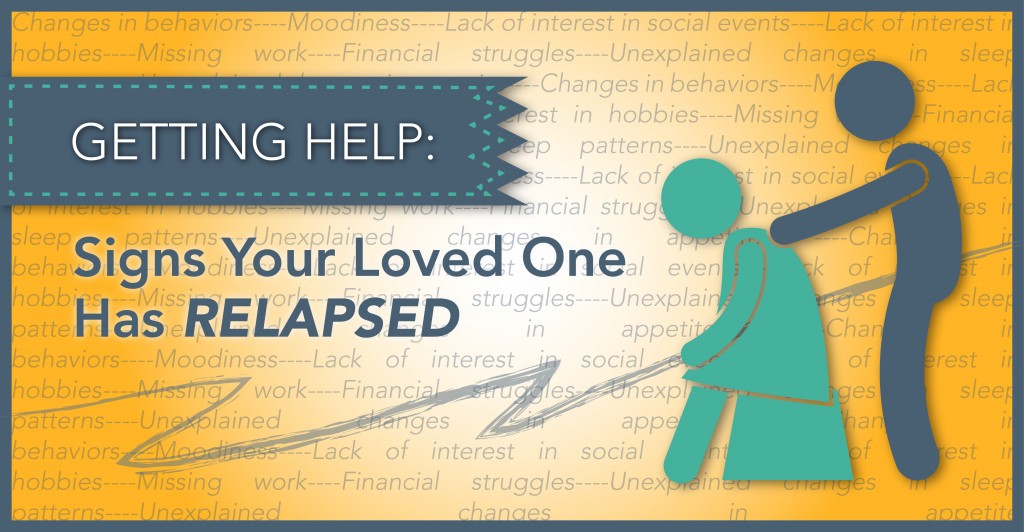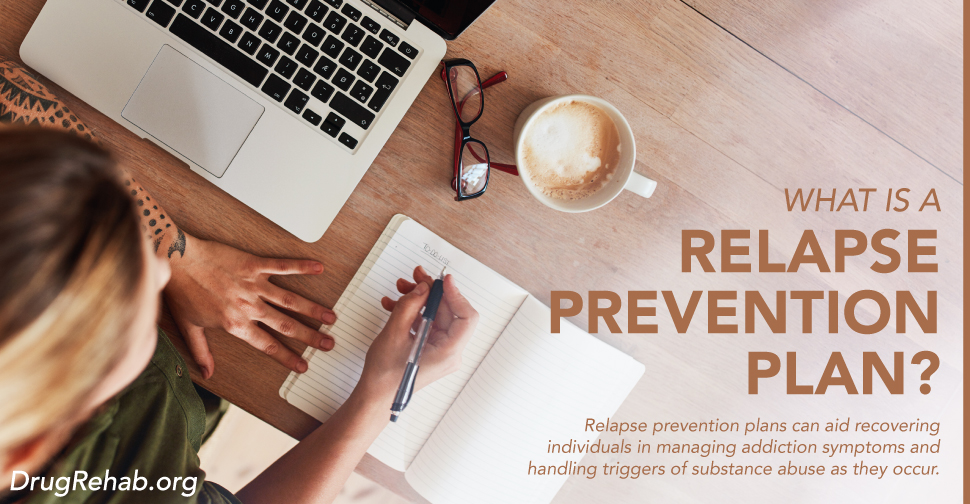
Entering treatment for drug or alcohol abuse can be one of the best choices you make in your life. Once you enter the program, you have an intense road of therapy, counseling, medication, and other possible treatment methods to help you get better. But what happens once you complete treatment, and get back to your life?
Will you relapse, or fall victim to addiction again? It’s definitely a possibility. Some may see relapse as a failure, but that is simply not the case. If you look at recovery as a spectrum, then you understand that in your newfound sobriety there may be a few falls from grace, but these do not define your progress.
It’s how you handle these lapses in your recovery goals that will determine the course of your recovery journey. When you face the triggers of addiction that pull you, will you have the stamina to push them away, to step aside? You will if you have a solid relapse prevention plan.
Relapse prevention begins in treatment. In fact, relapse prevention is treatment—all of your progress in a drug rehab center works toward preventing future relapse.
Why Do People Relapse?
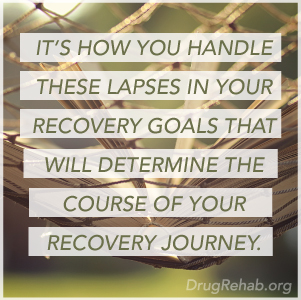 As the National Institute on Drug Abuse (NIDA) explains, “the chronic nature of the disease [addiction] means that relapsing to drug abuse at some point is not only possible, but likely.” However, contrary to what you may have heard or read, relapse is not a sign of treatment or recovery failure.
As the National Institute on Drug Abuse (NIDA) explains, “the chronic nature of the disease [addiction] means that relapsing to drug abuse at some point is not only possible, but likely.” However, contrary to what you may have heard or read, relapse is not a sign of treatment or recovery failure.
It’s not surprising to us when someone with other major illnesses relapse. You wouldn’t question someone having to re-enter treatment for diabetes. Addiction is a chronic illness as well. Though it is possible to effectively treat and cure addiction, relapse is simply part of the course.
“For a person recovering from addiction, lapsing back to drug use indicates that treatment needs to be reinstated or adjusted or that another treatment should be tried,” the NIDA explains.
Does Relapse Mean You Have To Go Back To Rehab?
Experiencing a relapse from sobriety is not a guarantee that you have to go back to rehab. Again, it’s all about how you handle that relapse. Life is full of substance abuse triggers. In treatment, you learn how to handle them.
When you begin going through your relapse, it’s important to call on principles, skills, and thought management processes learned during treatment. For instance, in Cognitive Behavioral Therapy (CBT), you may have learned to assess a situation, identify troubling thoughts and behaviors, and confront those thoughts and behaviors through logical means.
This sort of rationale can help immensely during a relapse, but sometimes the old pull of addiction is simply too strong, or your grasp on treatment principles isn’t strong enough yet. Admitting that you need some more time in treatment to gain a stronger hold on treatment principles doesn’t make you weak. It doesn’t even mean you aren’t well.
It simply means you are still working on your recovery goals. At the end of the day, the important thing is that you’re making strides to getting well. At DrugRehab.org, we recognize that relapse is not just an unfortunate possibility, but part of your recovery and help you to work through it.
How To Design A Relapse Prevention Plan
Each person will deal with relapse in his or her own way. Prevention plans for relapse are as unique as the individuals who will use them. Unfortunately, relapse is a side effect that tends to catch you off guard. That’s why it’s so important to have a plan in place for managing relapse when it occurs, and preferably before leaving treatment.
This can be as comprehensive as a written step-by-step guide to managing triggers and emotions or thoughts that lead to relapse, or as simple as giving voice to this plan during counseling or therapy.

The best way to design a prevention plan is to take a look at some key components that lead to relapse, and measures that will help prevent it, such as:
- Signs of relapse: there are many things that trigger abuse, but each is specific to the individual. For some, it may be past trauma and feelings associated with it. Whatever your triggers are, you have to recognize them and know how to manage them.
- Past relapses: if you’ve been through a relapse before, you may have the advantage of knowing how and when they may happen, which can help you in handling them.
- Who gives you support: whether this is family, friends, or a new support group you enter, such as a 12-step support group, having people who are behind you in your efforts can make a vast difference in handling relapse.
- Designing a life that is free from addiction: this may seem obvious, but it’s important to fill your schedule with healthy, fulfilling activities that help relieve and manage stress which often leads to relapse.
Having a plan doesn’t guarantee that you’ll be more likely to relapse. It just makes you more prepared in case it happens, helping you to stay the path of sobriety.
The Importance Of Addiction Recovery
How important is recovery? If you are falling into relapse, or have fallen before, you may be wondering just how important addiction treatment is to a healthy life. The NIDA reports that people who get into treatment and successfully complete treatment programs see less criminal activity, tend to stop substance abuse, and see better social and personal functioning overall.
Addiction can lead to a myriad of consequences in your life, especially for your health. Depending on the substance of abuse, long-term substance abuse can result in troubles with a number of organs such as the heart, liver, brain, lungs, and more. Prolonged abuse can also contribute to the development of several types of cancer.

If the damage to your health wasn’t enough, addiction changes you as a person. Once you become addicted, life becomes all about seeking the substance of choice. This can lead to some risky behavior and decisions.
No one casually uses a drug thinking addiction will be the result, or crime, or even contracting infectious or sexually transmitted diseases. But these are all possible consequences of abusing substances. Even with relapse, treatment and subsequent sobriety are far better options.
Getting Help With Your Relapse Prevention Plan
Relapse is not a step back in the path to sobriety, but simply another step along the way. You don’t have to be ashamed or discouraged if you’re experiencing relapse. Achieving sobriety long enough to relapse is a victory all its own.
But if you are finding it difficult to overcome a relapse, or you want to get back into treatment to steer yourself back in the right direction, we can help. Contact us today at DrugRehab.org to learn more about relapse, treatment options, and the best drug rehab centers available.
For More Information Related to “What Is A Relapse Prevention Plan?” Be Sure To Check Out These Additional Resources From DrugRehab.org:
- Implementing a Personal Action Plan for Addiction Recovery
- Cognitive Behavioral Therapy (CBT) For Addiction Recovery
- 5 Ways to Better Support a Loved One in Drug Rehab
- Should I Go Back To Rehab After A Drug Or Alcohol Relapse
- Identifying Your Relapse Triggers
Sources
American Psychological Association—Preventing Relapse
National Institute On Drug Abuse—What Is Relapse?
Psychology Today—Why Relapse Isn’t A Sign Of Failure


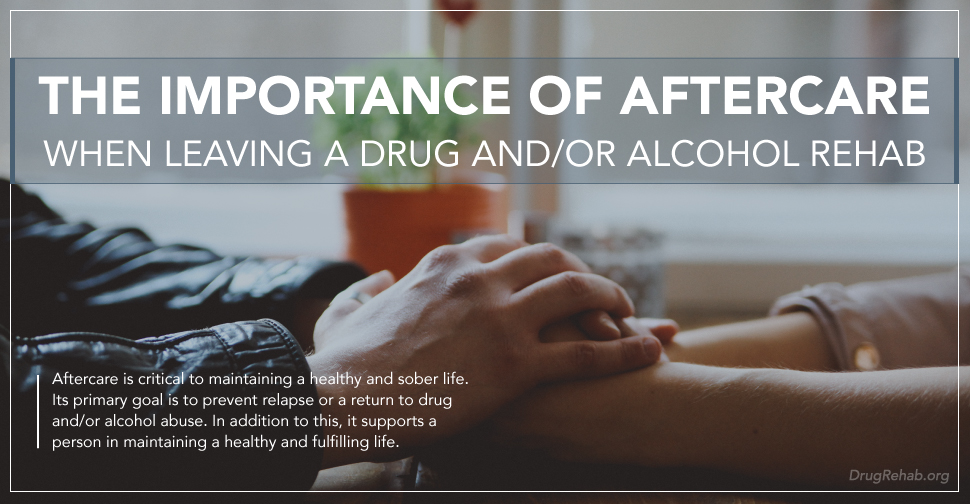
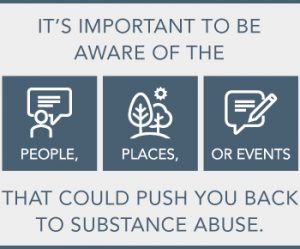
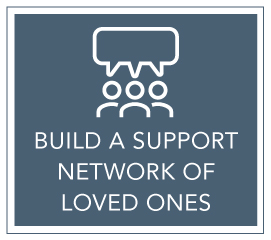 Avoiding relapse and staying sober is the goal and greatest benefit of aftercare. But beyond this, aftercare helps to reestablish you within your life. A sober life is very different from one clouded by the negativity of addiction. While this is by far a good thing, it can at times be overwhelming and confusing. Aftercare gives you a plan when things get tough. It also connects you to resources and outreach that can help to carry you through these times. The benefits include:
Avoiding relapse and staying sober is the goal and greatest benefit of aftercare. But beyond this, aftercare helps to reestablish you within your life. A sober life is very different from one clouded by the negativity of addiction. While this is by far a good thing, it can at times be overwhelming and confusing. Aftercare gives you a plan when things get tough. It also connects you to resources and outreach that can help to carry you through these times. The benefits include: